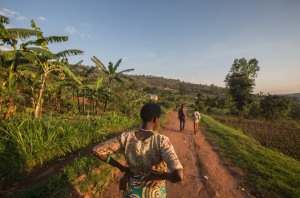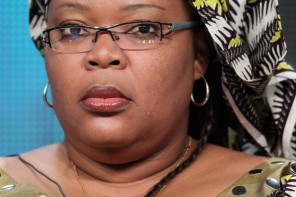A reader has pointed out an error I made last week, in a post about writing about rape in Congo. Having struggled with the balancing act that is reporting in impoverished conflict and post-conflict areas, I made a real idiot’s error, assuming that any woman with an byline for an American news agency is like me. Which is to say, I assumed the writer of the article whose lead I critiqued last week was, like me, a white woman. I suggested a difficulty in reporting about this is to find ways to understand “how…women talk about it with each other, not with white women who seem to have access to power and privilege.”
A reader tells me that the writer, whose name is Michelle Faul, is “actually an African woman reporter, not the ‘privileged white woman’ you refer to her as.”
I appreciate the correction. (And in its spirit, I point out that even as an “African woman reporter,” Michelle Faul may yet be a white woman.) White is the wrong frame. (No surprise. Race usually is.) There are a lot of white Africans in Africa, though not as many white Africans as there are black Africans. (And while we’re at it, I wish I knew what country she was from, and we could say, for example, “Kenyan woman reporter.”)
The power dynamics I critiqued in my post remain. Foreign reporters are always people who can get out. If the shit hits the fan, the AP is pulling Michelle Faul, wherever she’s from, out of Congo. That means the balance is off, which has lots of implications. It also means the cultural deck is stacked against us foreign reporters, and it takes a lot of deliberate work to report one’s way out of one’s own otherness, or try to.
The other dilemma which doesn’t go away, even among those of us who like to think we pay a lot of attention to these things, is about how we automatically think about race, especially when we’re talking about Africa, a place that has come to exist in Western minds as much as portraits of our own self-projections as its own entity. Maybe more so.
There is so much work for the moral imagination yet to do.




Just FYI, I’m from Zimbabwe, and I’m black.